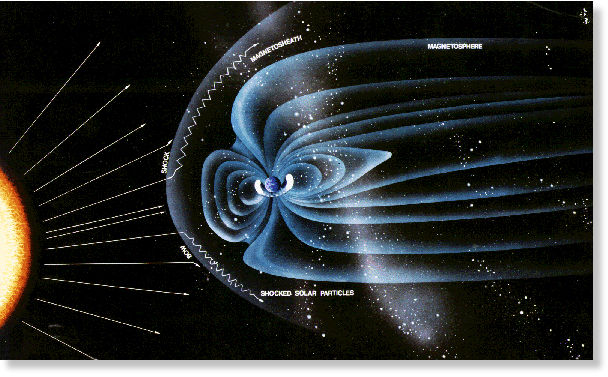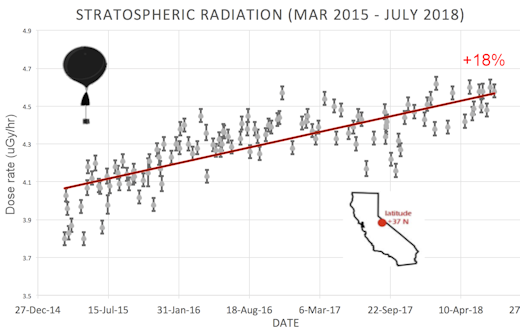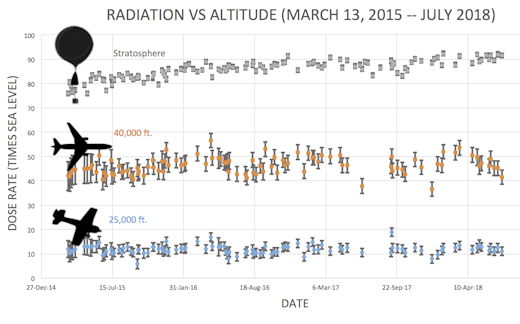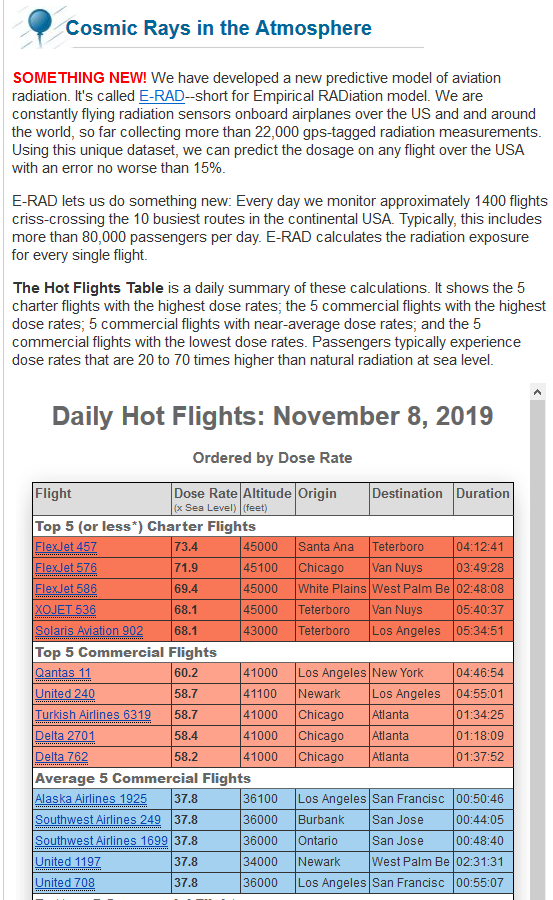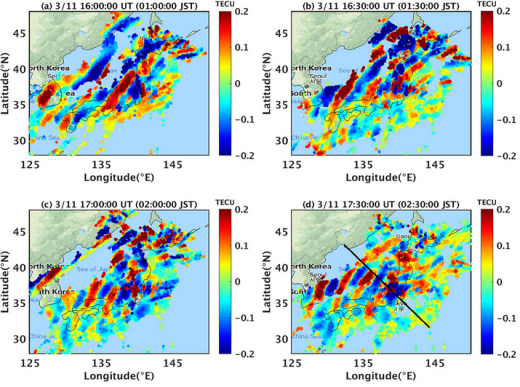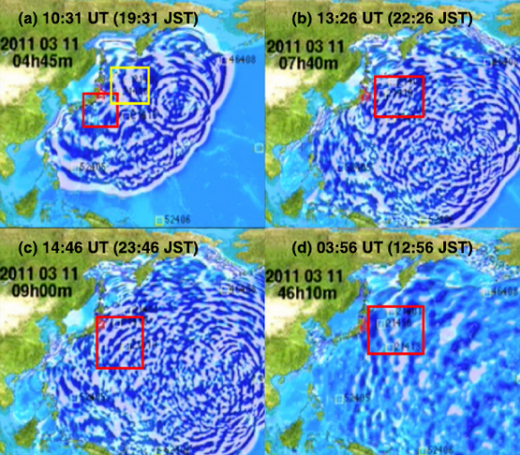Neural and behavioral effects of cosmic rays with chronic exposure:
From the video, he mentions the "distress and panic like behaviors" induced with the low-dose chronic exposure of radiation, and also makes the connection to the masses' behavior being affected by this already nowadays.
From the article: (New concerns for neurocognitive function during deep space exposures to chronic, low dose rate, neutron radiation)
"Simulating the space radiation environment to date has been limited by available technology and restricted by the practicalities of implementing protracted terrestrial-based exposures. Now through the use of a new neutron irradiation facility, capable of simulating the realistic low dose rates found in deep space, we have uncovered striking neurobehavioral and electrophysiological defects in rodents subjected to continuous (6 month) low dose rate (1 mGy/day) neutron exposures. This study represents the first to document the significant adverse consequences of space relevant radiation dose rates on the brain, and points to the heightened risks associated with NASA’s upcoming plans for travel to Mars. "
In the study the found an increase in anxiety and decreased fear-extinction behavior (which is like PTSD), and predicted that "1 in every 5.1 astronauts would experience increased anxiety-like behavior during a mission to Mars, while 1 in every 2.8 astronauts would experience difficulty with episodic memory."
What I'm having trouble with is comparing their dosage (1 mGy/day, or 1 milligray) to the amount of space radiation we receive on the surface of the earth, but I'll look into it more later and try again to get an equivalency. But it is interesting to note the increase in self-reports of anxiety nowadays, and from Davidson's book he cites a correlation between increase in anxiety and galactic cosmic rays over long term.
From the video, he mentions the "distress and panic like behaviors" induced with the low-dose chronic exposure of radiation, and also makes the connection to the masses' behavior being affected by this already nowadays.
From the article: (New concerns for neurocognitive function during deep space exposures to chronic, low dose rate, neutron radiation)
"Simulating the space radiation environment to date has been limited by available technology and restricted by the practicalities of implementing protracted terrestrial-based exposures. Now through the use of a new neutron irradiation facility, capable of simulating the realistic low dose rates found in deep space, we have uncovered striking neurobehavioral and electrophysiological defects in rodents subjected to continuous (6 month) low dose rate (1 mGy/day) neutron exposures. This study represents the first to document the significant adverse consequences of space relevant radiation dose rates on the brain, and points to the heightened risks associated with NASA’s upcoming plans for travel to Mars. "
In the study the found an increase in anxiety and decreased fear-extinction behavior (which is like PTSD), and predicted that "1 in every 5.1 astronauts would experience increased anxiety-like behavior during a mission to Mars, while 1 in every 2.8 astronauts would experience difficulty with episodic memory."
What I'm having trouble with is comparing their dosage (1 mGy/day, or 1 milligray) to the amount of space radiation we receive on the surface of the earth, but I'll look into it more later and try again to get an equivalency. But it is interesting to note the increase in self-reports of anxiety nowadays, and from Davidson's book he cites a correlation between increase in anxiety and galactic cosmic rays over long term.

